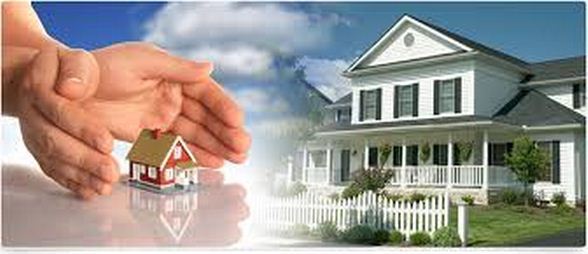Delhi, India’s bustling capital, has long been a focal point for real estate development, with its mix of rich history, modern infrastructure, and dynamic economy. As we move into the next decade, the real estate in Delhi is set to undergo significant transformations, driven by shifting consumer preferences, technological advancements, and a greater focus on sustainability. Whether you are an investor, developer, or homebuyer, understanding the key trends in Delhi’s real estate market will be crucial for making informed decisions. Here’s a look at the most exciting trends to watch for in the coming years.
- Rise of Sustainable and Green Buildings
The next decade will see an even greater emphasis on sustainable and eco-friendly real estate in Delhi. Rising awareness of climate change, along with government initiatives to promote green building certifications (such as IGBC and LEED), will continue to drive demand for energy-efficient homes.
Key trends include:
- Solar-Powered Homes: Developers will increasingly integrate solar panels, reducing dependency on traditional energy sources.
- Water Conservation Features: Rainwater harvesting, efficient waste management, and water recycling will be common in new residential and commercial projects.
- Green Landscaping: Eco-friendly designs, such as green rooftops, community gardens, and extensive green spaces, will not only improve air quality but also provide residents with a connection to nature.
- Smart Homes and Automation
With the growing adoption of IoT (Internet of Things) technologies, smart homes will become a significant part of the real estate landscape in Delhi. Homes equipped with smart devices for lighting, security, climate control, and entertainment will become increasingly common.
Expect to see:
- Home Automation Systems: Seamless control of lighting, temperature, and security via mobile apps and voice commands.
- Smart Security Features: Advanced surveillance systems, facial recognition entry points, and smart locks will enhance home security.
- Energy Efficiency: AI-powered systems that monitor and reduce energy consumption, creating cost-effective and environmentally friendly living spaces.
- Mixed-Use Developments and Integrated Communities
The future of real estate in Delhi will see a significant shift towards mixed-use developments, combining residential, commercial, retail, and leisure spaces in a single location. This approach promotes walkability, reduces commute times, and creates self-sustaining communities.
Key features include:
- Live-Work-Play Environments: Developments where people can live, work, and relax all within a single complex will be in high demand.
- Retail and Office Space Integration: Expect to see more malls, office spaces, and residential buildings being developed in tandem, creating vibrant communities.
- Public Amenities: These projects will include schools, parks, gyms, and healthcare facilities, ensuring that all necessary services are within close reach.
- Affordable Housing and Mid-Income Projects
While luxury real estate continues to thrive, the focus is also shifting towards affordable housing in Delhi. The government’s push for affordable housing, along with growing demand from the middle class, will drive the development of more budget-friendly yet quality homes.
Trends to watch include:
- Affordable Housing Schemes: Initiatives like the PMAY (Pradhan Mantri Awas Yojana) will continue to promote affordable housing for the economically weaker sections.
- Smarter Urban Planning: Developers will focus on creating more affordable housing options without compromising on quality, incorporating modern amenities into cost-effective projects.
- Micro-Living: Compact, efficient living spaces that maximize the use of available area, such as studios or one-bedroom apartments, will appeal to young professionals and small families.
- Technology and Virtual Reality in Real Estate
The role of technology in real estate transactions will grow exponentially over the next decade. Virtual and augmented reality (VR/AR) will transform how homes are bought and sold, making the process more immersive and efficient.
Expect to see:
- Virtual Property Tours: Buyers will be able to explore properties from the comfort of their homes through immersive virtual tours and 3D floor plans.
- AI for Property Search and Pricing: AI-driven tools will recommend properties based on buyers’ preferences and offer predictive analytics for property values and investment potential.
- Blockchain for Transactions: The real estate sector will increasingly adopt blockchain technology for secure, transparent, and quick property transactions, reducing paperwork and legal complexities.
- Urban Redevelopment and Smart Cities
The Delhi government’s ongoing efforts to develop and upgrade the city’s infrastructure will lead to massive urban redevelopment projects, particularly in underserved areas. This will give rise to smart cities that integrate technology to improve efficiency, sustainability, and the quality of life for residents.
Key developments will include:
- Revitalization of Older Districts: Plans to redevelop older, underdeveloped neighborhoods into modern, mixed-use urban spaces will continue.
- Smart Infrastructure: Intelligent traffic management, waste management, and energy systems will be central to the smart cities initiative, making them more livable and sustainable.
- Transportation and Connectivity: Improved metro networks, integrated transportation systems, and electric vehicle infrastructure will make commuting within the city easier and greener.
- Real Estate Investment in Non-Traditional Areas
As the city expands outward, there is an increasing focus on developing real estate in suburban and semi-urban regions of Delhi. This shift will allow people to access more affordable housing options while remaining well-connected to the heart of the city.
Key trends include:
- Suburban Growth: Areas such as Dwarka, Rohini, and Narela will see growth in residential and commercial projects as more people seek affordable yet accessible living spaces.
- Better Connectivity: Improved transport links, such as the metro extension and expressways, will connect suburban areas with Delhi’s central business districts, encouraging new investments.
- Rural to Urban Migration: As more people move to Delhi for employment and better living standards, the real estate market in smaller towns and outskirts will continue to rise.
Conclusion
The future of real estate in Delhi promises to be dynamic, with innovative technologies, sustainable practices, and urban transformations playing a central role in shaping the city’s growth. From smart homes to mixed-use developments and eco-friendly projects, the next decade will see a fundamental shift towards smarter, greener, and more integrated urban living. Whether you’re an investor, developer, or homebuyer, these trends offer a glimpse into an exciting future for Delhi’s real estate market.









